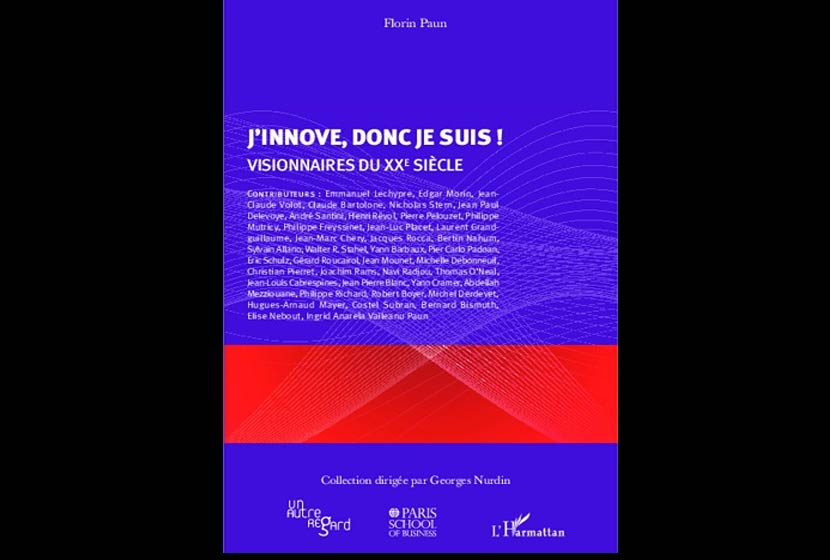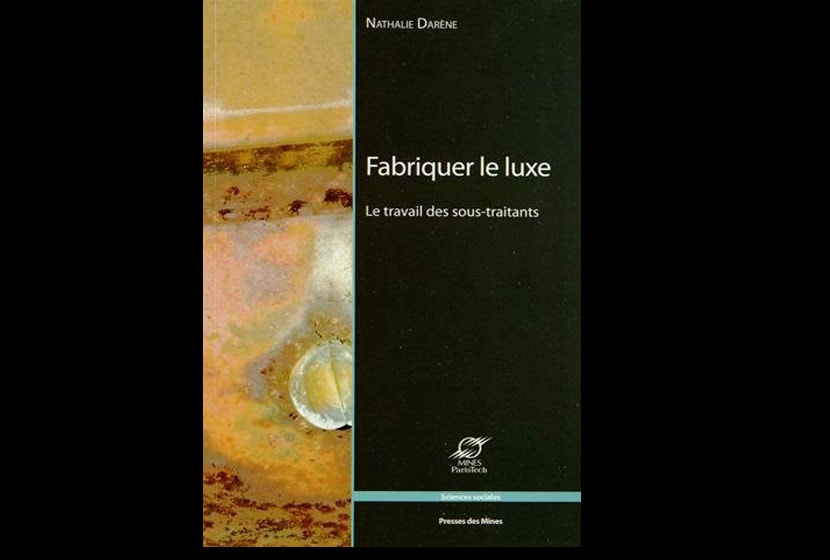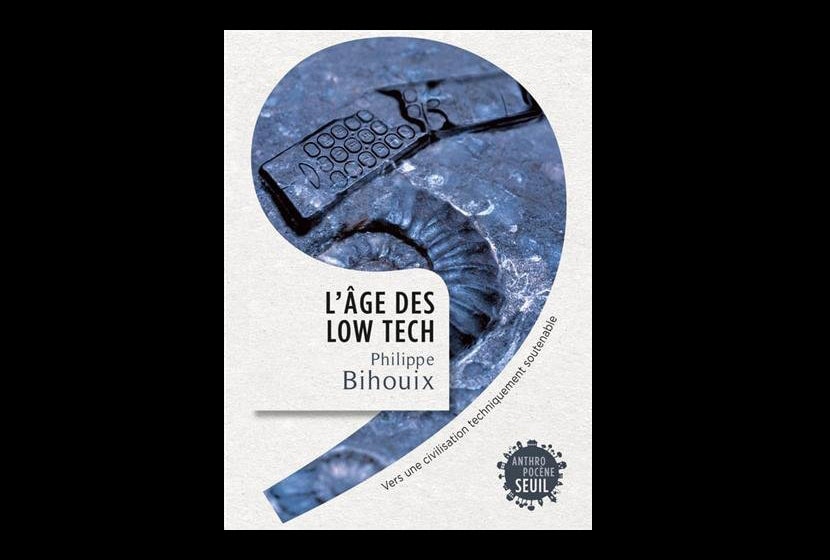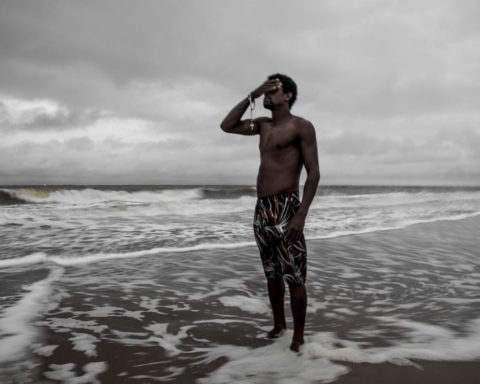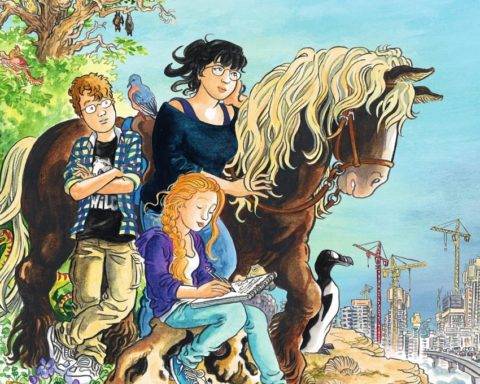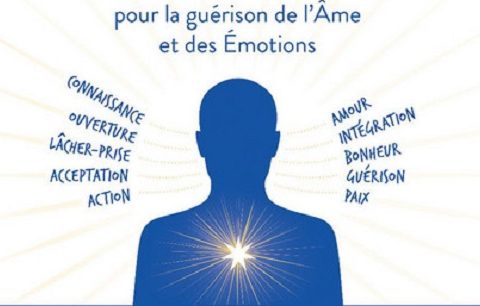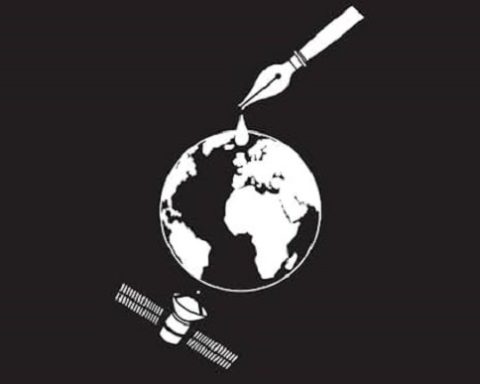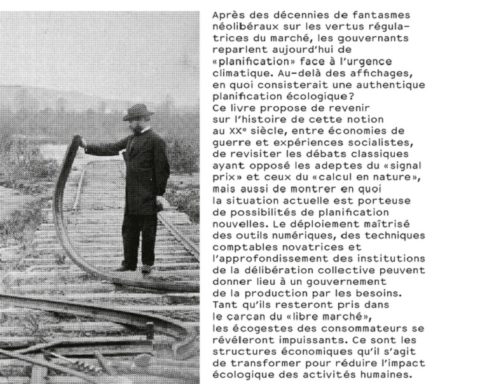Florin Paun– Edition L'Harmattan - January 2014 - 202 Pages
Personalities such as Edgar Morin and Lord Nicholas Stem have agreed to join this new dynamic approach to empowering people to consider together the new challenges of value creation and assessment in the 21st century. Their visionary testimony on this new attitude "I innovate, therefore I am" encourages more than ever to act to co-construct a shared value. Dr. Florin Paun was keen to give a voice to visionary leaders who, despite their differences, open our minds to the same objective: to take part with confidence and pleasure in the widespread process of innovation (social and technological) that creates shared value between all stakeholders.
Director of innovation in France and theorist of the evolution of innovation models and tools, Florin Paun encourages the understanding of the behaviors of innovation actors by creating real bridges between the "world of practitioners and the "world of theorists". He teaches his course in innovation in Grandes Ecoles and universities in Europe and advises networks of French practitioners but also European governments on the evolution of innovation strategies, tools and models.
Interview with Yann Cramer, General Manager Innovation Shell Projects & Technology Downstream :
Question: What new economic model is needed to be in tune with the society of the 21st century?
Yann Cramer We're at a crossroads. In its new scenarios, Shell is exploring two possible futures called Mountains and Oceans. Starting from the observation that our societies have entered an era of high political, economic and social volatility, the scenarios look to the future by asking the question: how are we going to meet the needs of a world where the demand for energy, water and food could double by 2050, where access to resources is increasingly difficult, and where environmental protection is an imperative?
In the scenario MountainsThe status quo continues: those with the political, economic or social advantage keep the upper hand. Stability is valued above all else, at the risk of rigidity. By concentrating decision-making processes, the challenges of energy, water and food are addressed in a programmatic manner.
In the scenario OceansAs a result, power is shared among more actors, leading to more reforms of political, economic and social systems, sometimes at the risk of destabilisation. The necessary compromises between divergent interests lead to the emergence on the ground of more diverse and often more local solutions.
Scenarios guard against the temptation of the crystal ball. Their purpose is not to predict the future, but to describe different possible futures in order to prepare for a range of eventualities. I believe this is indeed a wise approach and I will leave it at that.
Question: Innovation has become a collaborative process that today involves companies, customers, local authorities and other stakeholders, and is perceived as central to the logic of company competitiveness and the attractiveness of territories. What new models of innovation are needed to meet these 21st century challenges?
Yann Cramer : I would say that innovation has become a collaborative process again. The steam engine used 200 years ago in the Cornwall mines in Britain has seen its productivity triple in 30 years thanks to a process of sharing best practices between engineers working in different mines. This sharing, which today would be called Open Source, took place through the specialist journal Lean's Engine Reporter. From this point of view, the Internet has not invented anything, but it has unquestionably regenerated the concept of open innovation that the 20th century had neglected in favour of a logic of secrecy in Research & Development.
Today, competitive advantage is no longer a secret and is homemade from A to Z. In an increasingly complex, unstable and fast-paced world, competitive advantage now lies in the ability to quickly deploy new solutions in the marketplace. And today, even more than in the past, if you have an idea, it's not usually that you're a genius, it's that the idea is in the air. And if it's in the air, others have had it or will have it. Moving quickly from idea to realization and full-scale deployment requires skills that are not found in a single organization. Cooperation is required.
However, I have learned from experience that the implementation of cooperation between actors from different cultures takes time itself. Therefore, if the goal is to move quickly from idea to action, organizations need to develop a true culture of collaboration, a kind of Lingua Franca of innovation that transcends the inevitable differences in objectives and approaches, and that allows cooperation to be initiated "on demand" in a natural way. The various open innovation platforms that we see flourishing are part of the vocabulary of this Lingua Franca.
Question: How can the value created by the economic model be evaluated with other evaluation tools than those inherited from Fordism? How can we use the logic of co-evaluation (with stakeholders) as a strategy for democratizing the issues of evaluation of a shared value?
Yann Cramer Research in the cognitive sciences has shown that the best decisions are generally the result of an individual evaluation phase followed by a phase of pooling and discussion to arrive at a collective evaluation that can indeed be called co-evaluation. Moreover, many examples have shown that so-called breakthrough innovations have in common that they are located at the intersection of desirable (for the consumer), feasible (for the engineer or designer) and profitable (for the different actors in the value chain). Consequently, co-evaluation involving all stakeholders in one form or another is a key factor for success.
Question: What new governance of value creation to ensure the growth of both companies and territories while respecting the environment and social values?
Yann Cramer If we believe in the value of a cooperative logic, we cannot at the same time call for governance by a higher authority. Collaboration is necessary; it cannot be imposed. But it does involve all political, economic and social actors. I do not believe that this is an entirely new trend. Many companies have understood for several decades the need not to neglect any of the actors, hence the proactive policies of Corporate Social Responsibility.
The example of the Cornwall mines of the early 19th century implies that digital is not the trigger for collaboration. I believe that the trigger, today as at the beginning of the industrial revolution, is a form of urgency. The urgency today is to solve the equation of supply and demand in a way that respects the environment and future generations. On the other hand, what digital technology allows is the creation of communities of interest, the networking of actors, and the pooling of knowledge, all on a scale and with a speed unknown until the end of the 20th century. It then becomes impossible to ignore or short-circuit certain stakeholders, which reinforces their legitimacy to participate in the process of collaborative innovation and co-evaluation.
Question: How can these changes in economic models and lifestyles be part of a natural evolution in the anthropological sense of the evolutionary paradigm that puts humans in coherence with their environment?
Yann Cramer The human being has a tremendous capacity to adapt... and a no less formidable resistance to change. Movement eventually prevails over immobility when the environment poses new and seemingly insurmountable challenges to humans. Plato already said that "necessity is the mother of invention". The production and consumption of energy are two striking examples of this.
In the field of energy production, we are now seeing the emergence of a mosaic of solutions that sustainably includes fossil fuels, but takes us forever away from the all-oil/coal era. China is the leading producer and user of coal, and the leading producer and user of solar panels. This mosaic adapts to the local environment and the resources it offers: solar energy is developing in Spain, wind power in Denmark, ethanol in Brazil and gas in Russia.
As far as energy consumption is concerned, there is a real proliferation of solutions. Hybrid vehicles and positive energy buildings are concrete examples. And I anticipate that the development of more radical solutions will go hand in hand with the emergence of new ways of consuming that generate efficiency. For example, the commercial development of all-electric vehicles could benefit from the transition by some consumers from a model in which everyone owns an all-purpose car that spends most of its time at a standstill, to a model in which everyone can use, depending on the needs of the moment, a vehicle from a shared fleet for the duration of a trip. Consuming according to one's actual rather than potential needs will prove to be a particularly powerful form of waste reduction and, by the same token, of bringing the consumer and his environment into line.
Question: What is your motto for your future actions but also for the society of the 21st century?
Yann Cramer In his novel Il Gattopardo (The Cheetah), Tomasi di Lampedusa tells the transition from an old order to a new one, during a period of Italian history called Il Risorgimento - The Resurgence, a word of hope in these times of doubt against the backdrop of economic crisis. A phrase from the novel has remained famous: "If we want everything to remain as it is, everything must change".
Seeing the hundreds of millions of children, women and men throughout the world, particularly in the so-called emerging countries, who have been lifted out of the most unacceptable poverty, I deeply believe that the developments we have experienced over the last 20 or 30 years have contributed significantly to human progress. But we are still a long way from that, and no recipe is perfect or perpetual. Since you are asking me for a motto, I propose: "if we want to keep it going, we're gonna have to change it. »
Contributors :
Emmanuel Lechypre, Edgar Morin, Jean-Claude Volot, Claude Bartolone, Nicholas Stern, Jean Paul Delevoye, André Santini, Henri Révol, Pierre Pelouzet, Philippe Mutricy, Philippe Freyssinet, Jean-Luc Placet, Laurent Grandguillaume, Jean-Marc Chery, Jacques Rocca, Bertin Nahum, Sylvain Allano, Walter R. Stahel, Yann Barbaux, Pier Carlo Padoan, Eric Schulz, Gérard Roucairol, Jean Mounet, Michelle Debonneuil, Christian Pierret, Joachim Rams, Navi Radjou, Thomas O'Neal, Jean-Louis Cabrespines, Jean Pierre Blanc, Yann Cramer, Abdellah Mezziouane, Philippe Richard, Robert Boyer, Michel Derdevet, Hugues-Arnaud Mayer, Costel Subran, Bernard Bismuth, Elise Nebout, Ingrid Anarela Vaileanu Paun.
Thanks from Florin Paun :
"I would like to thank all these visionaries of the 21st century who have agreed to participate in this work and especially to share with us their vision and their confidence in this change of attitude, this necessary "metamorphosis" (Morin, 2012) of the generations of the 21st century. Thanks to Emmanuel Lechypre, for accepting the challenge of writing the preface to this book and thanks to Ingrid Anarela Vaileanu Paun, journalist and economist, for her contribution to the selection and organisation of the interviews.
I would also like to thank Yves Bourdillon, a French journalist and writer, for his advice and support for this book. Thanks to Georges Nurdin (Paris School of Business) who encouraged and supported the publication of the book at l'Harmattan and to Yann Dudreuil for his help in proofreading the book. Above all, I would like to thank all those innovative SMEs and ETIs, major French groups and researchers who have inspired me in the analysis of these subjects for more than 7 years.
They are the ones who have given me confidence every day thanks to their new attitude, to this "culture of innovation" ("I innovate, therefore I am!") which is bringing about a real "metamorphosis" in our society. This despite the routine, the hesitations and the inevitable blockages in the face of the emergence of this new French model of innovation.
Finally, thanks to you, readers who dare to imagine with us how France and the World would be, with this new attitude and culture of innovation that we can all adopt to follow the "Way" (MORIN, E., 2012) of the "metamorphosis" of our 21st century society. »

